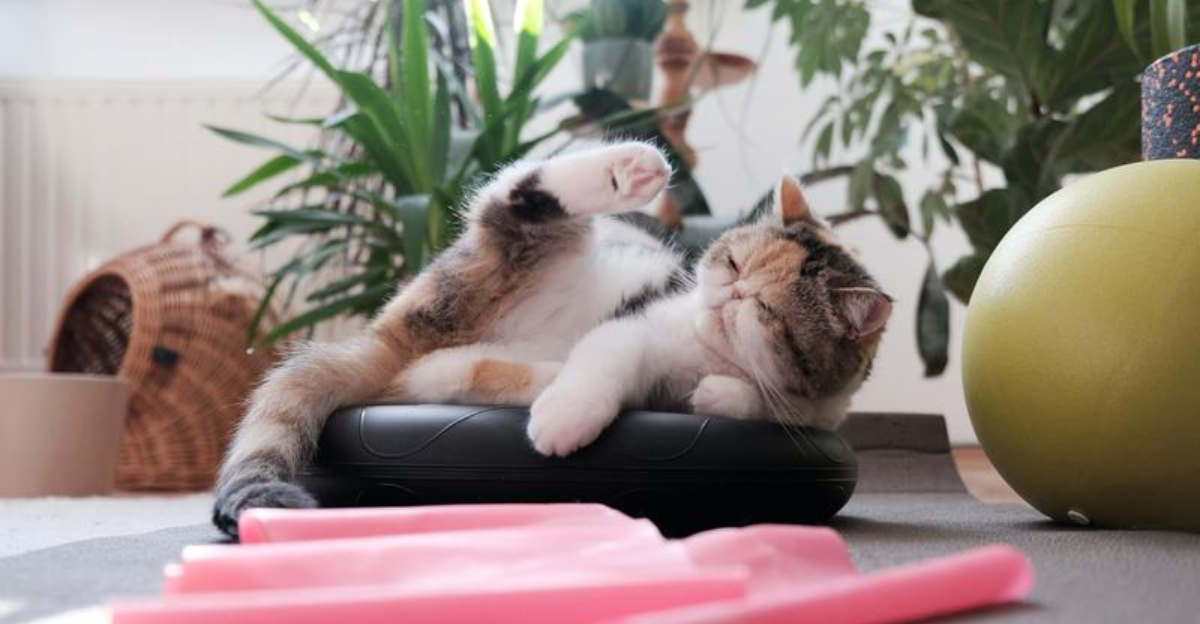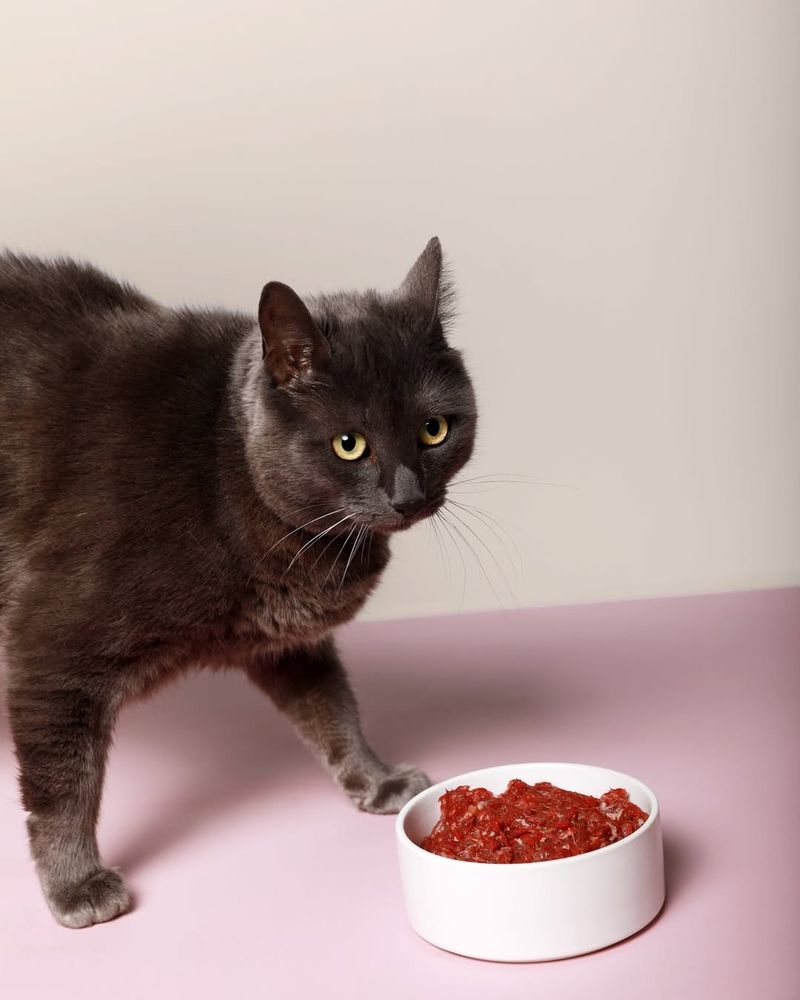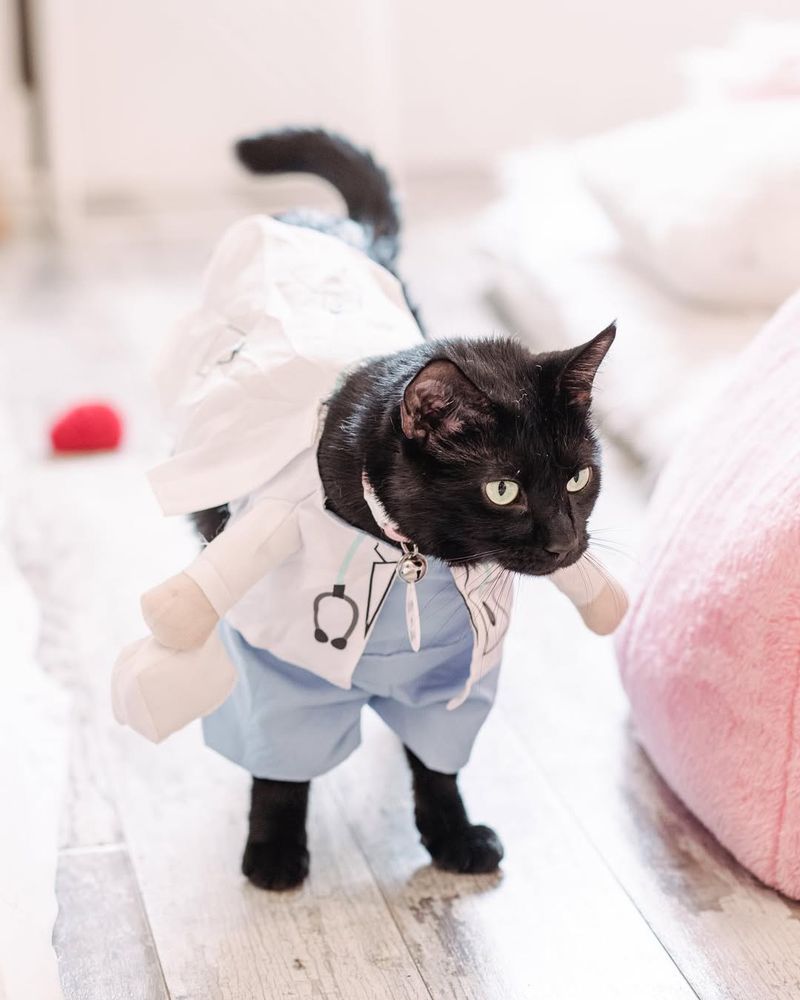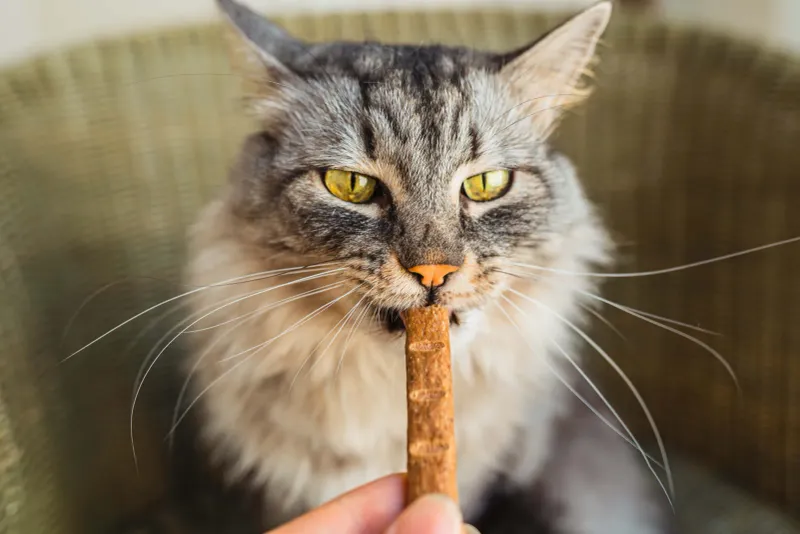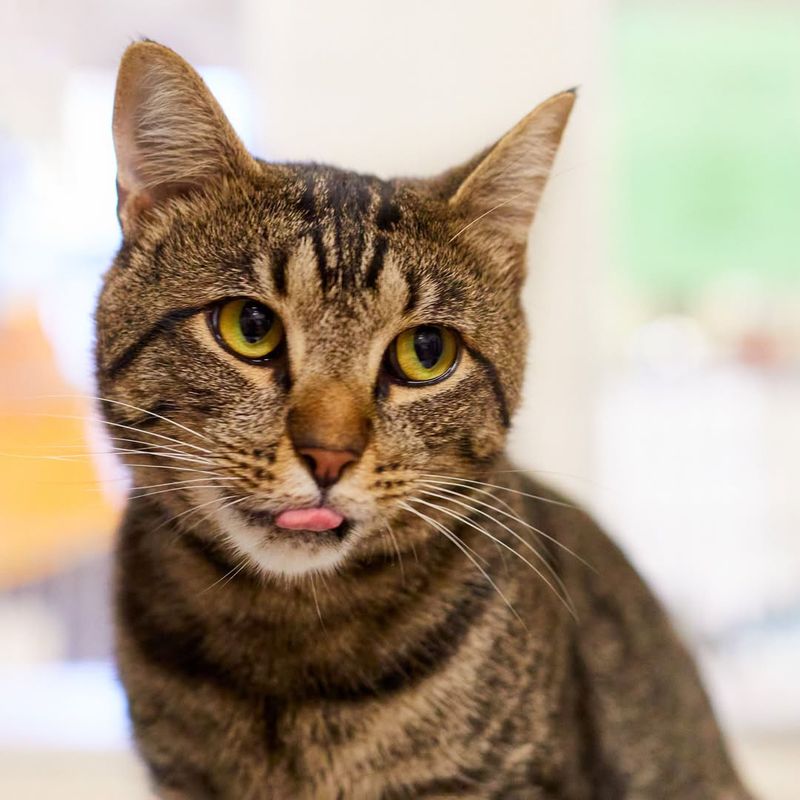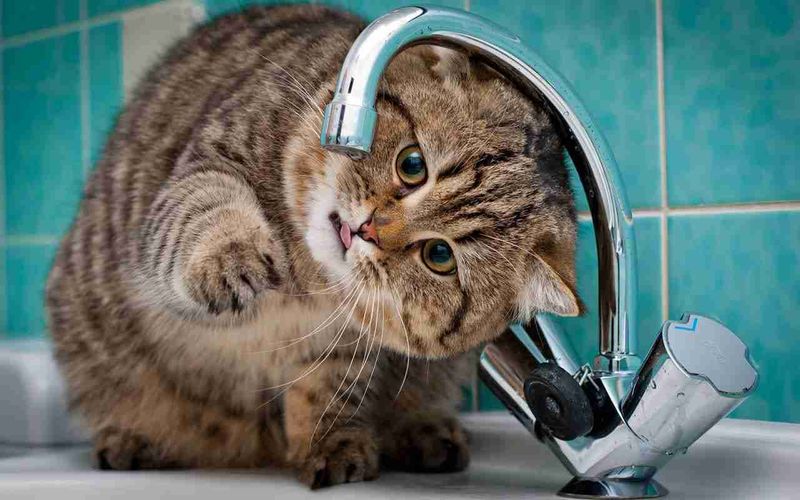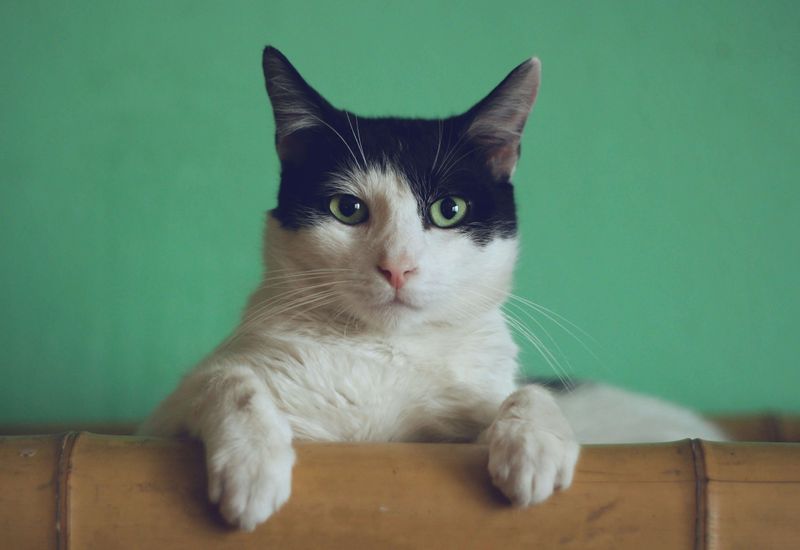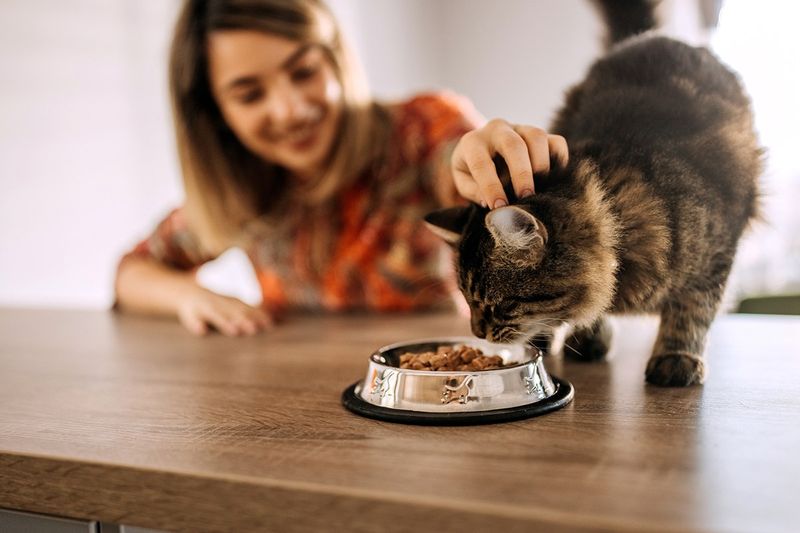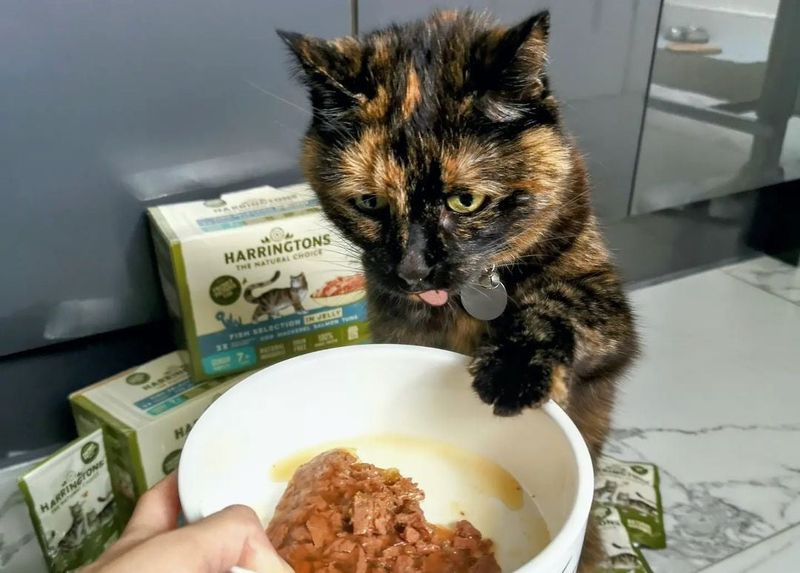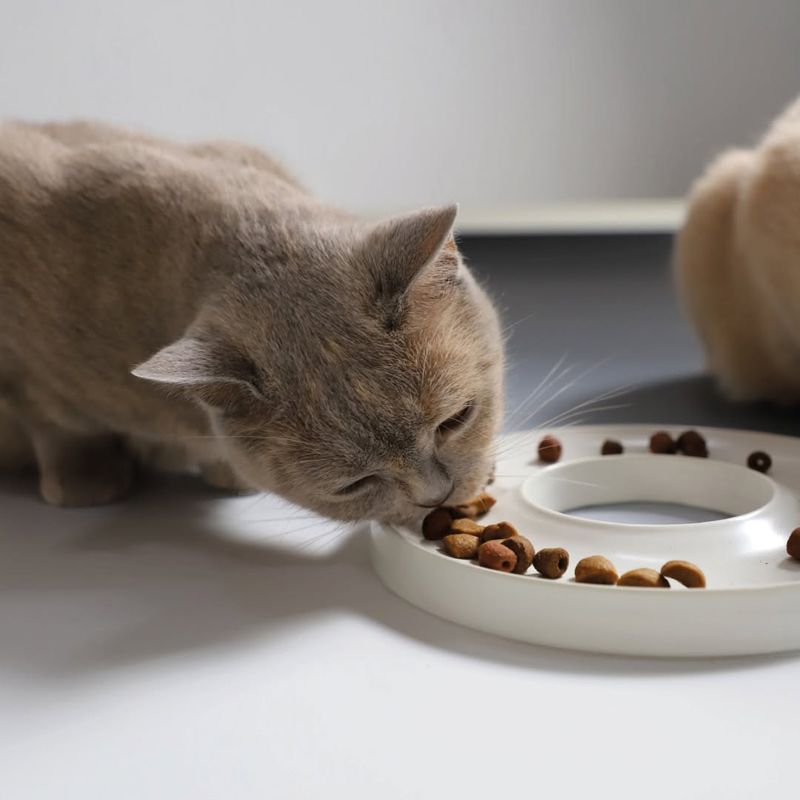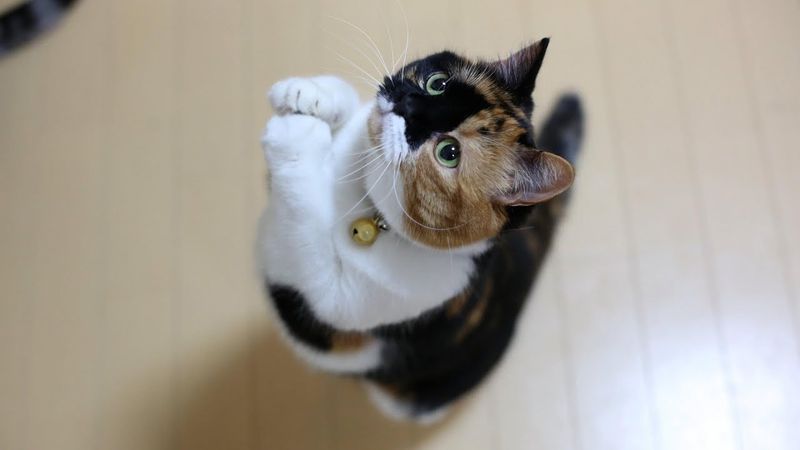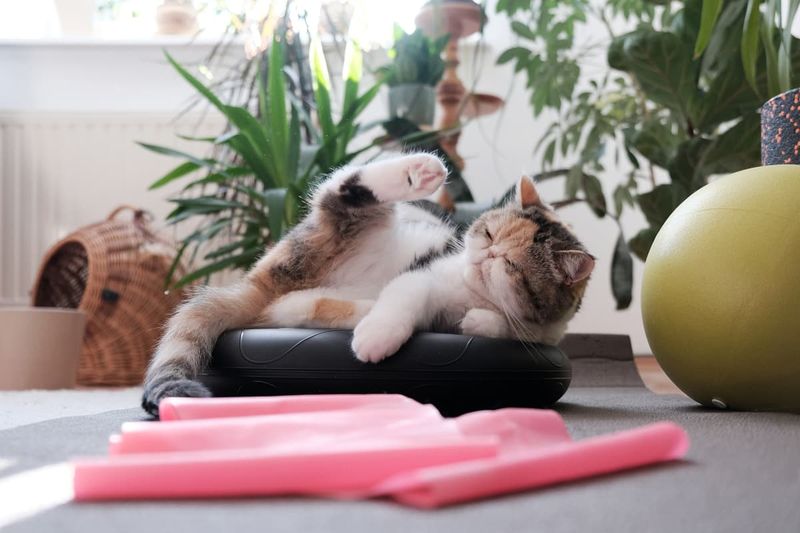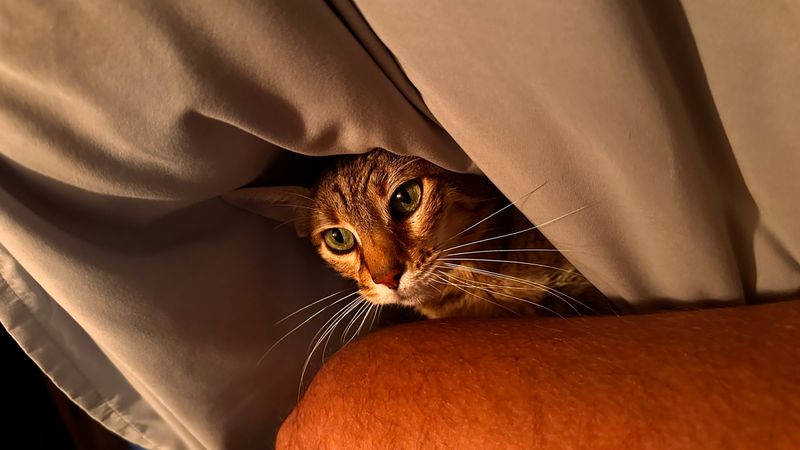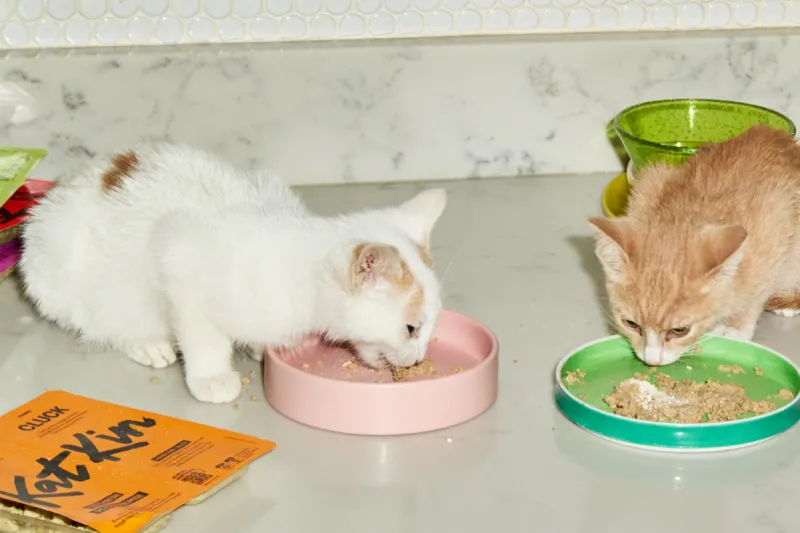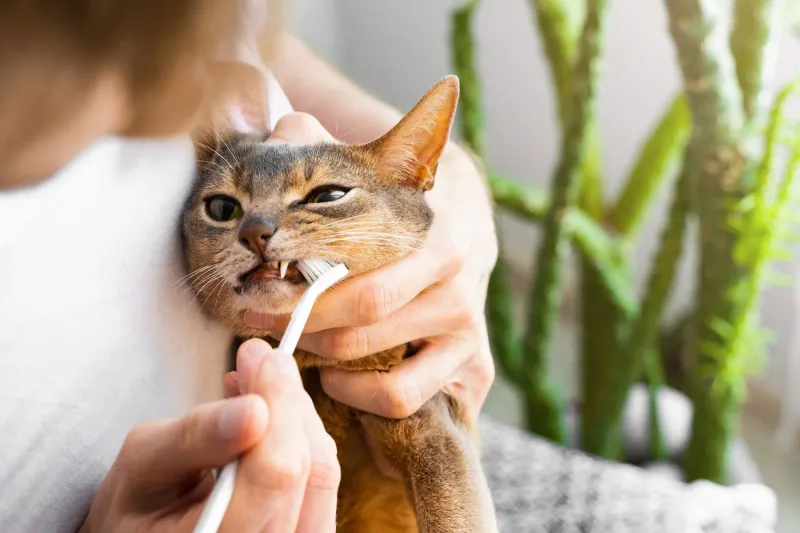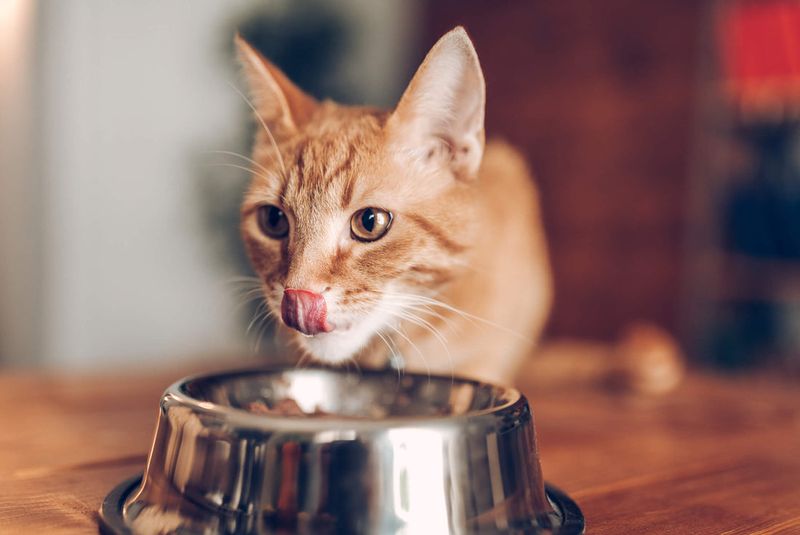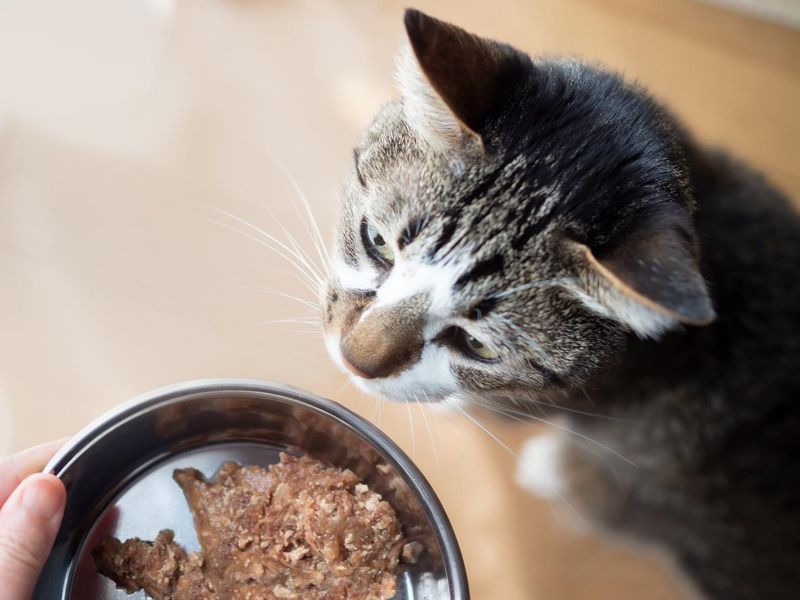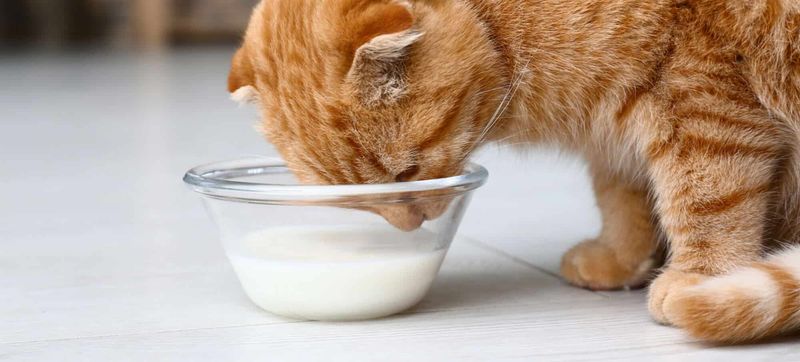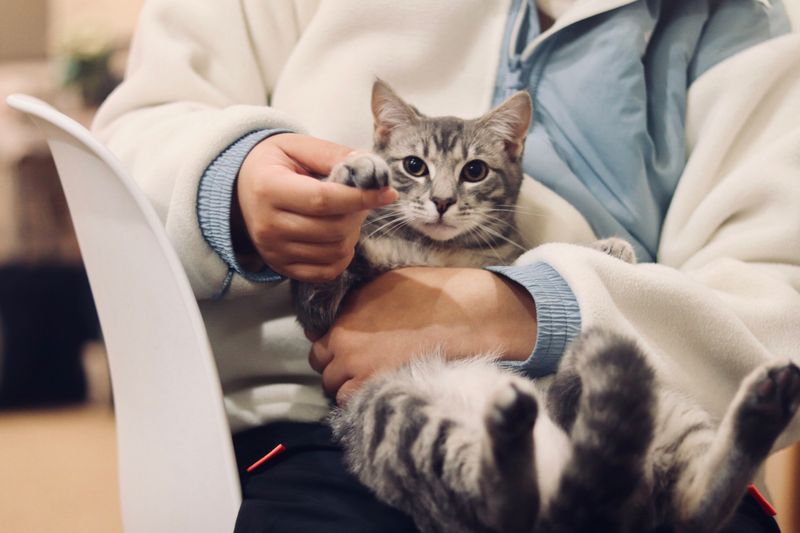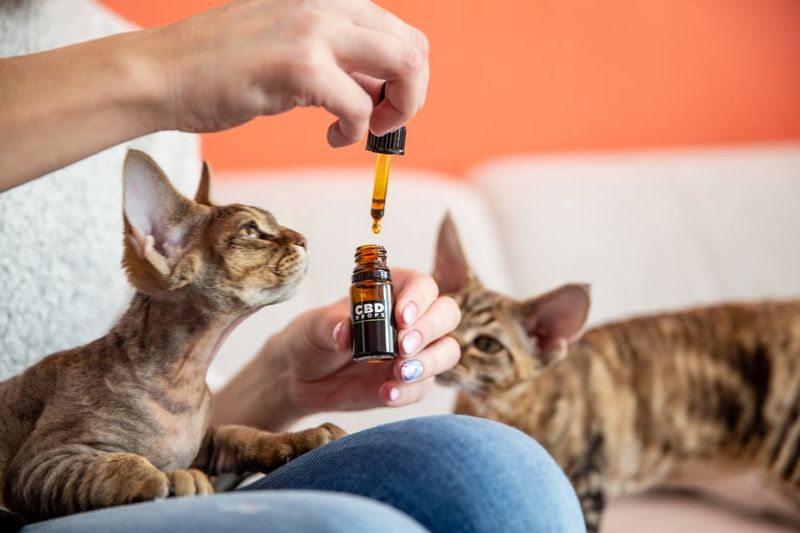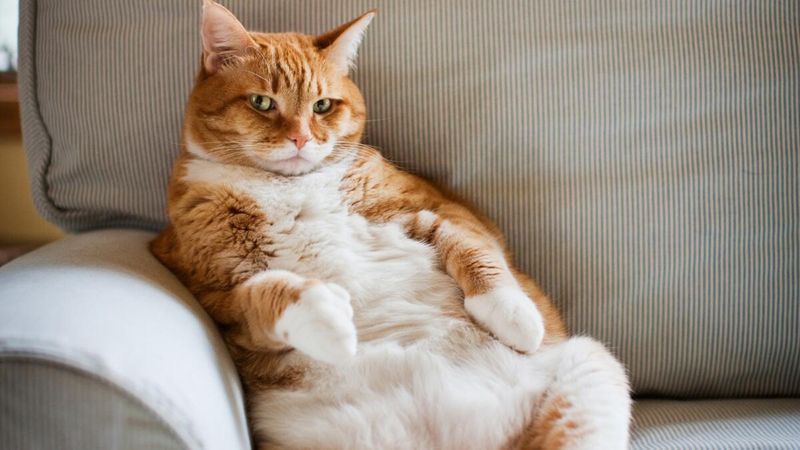📖 Table of Content:
- 1. High-Quality Protein Food
- 2. Prebiotics
- 3. Probiotics
- 4. Digestive Enzymes
- 5. Fresh Water
- 6. Fiber-Rich Additives
- 7. Gradual Diet Transitions
- 8. Smaller, Frequent Meals
- 9. Slow Feeder Bowls
- 10. Avoid Table Scraps
- 11. Regular Exercise
- 12. Stress Reduction
- 13. Consistent Feeding Schedule
- 14. Dental Care
- 15. Omega-3 Supplements
- 16. Include Wet Food
- 17. Monitor for Allergens
- 18. Regular Vet Visits
- 19. Herbal Aids
- 20. Portion Control
Just like people, cats can experience digestive challenges that impact their overall wellbeing and mood. These issues can range from minor discomfort to more serious health concerns, underscoring the importance of a balanced digestive system. Recognizing and addressing these problems early can make a significant difference in your pet’s quality of life.
Implementing targeted dietary and lifestyle modifications can be a game-changer for your cat’s digestion. Whether it’s switching to a higher quality food, incorporating supplements, or adjusting feeding habits, these changes can help soothe and support your feline friend’s digestive tract. A proactive approach not only improves digestion but also enhances overall health and vitality.
These tips cover a range of interventions, from nutritional tweaks to behavioral adjustments, ensuring a comprehensive approach. By embracing these changes, you can pave the way for a happier, healthier cat, thriving from the inside out.
1. High-Quality Protein Food
Switching to premium cat food with high-quality proteins can greatly enhance digestion. Cats rely on protein as a primary nutrient, and premium foods offer more digestible sources. These foods typically contain real meat or fish as primary ingredients, avoiding fillers that can cause digestive strain. Feeding your cat protein-rich meals supports muscle maintenance and energy levels. When selecting cat food, look for those labeled high-protein by reputable brands. This ensures your cat receives the necessary amino acids for optimal health. Additionally, consult with your vet to tailor food choices to your pet’s specific needs.
2. Prebiotics
Adding prebiotics to your cat’s diet supports the growth of beneficial gut bacteria. Prebiotics are non-digestible fibers that feed good bacteria, promoting a balanced gut environment. This balance helps with nutrient absorption and boosts the immune system. Prebiotics can be found in specific supplements or added to food products. When choosing prebiotics, opt for those specially formulated for cats to ensure safety and effectiveness. Gradually introduce them into your cat’s diet to avoid any digestive upset. A well-fed gut flora significantly enhances overall digestive health.
3. Probiotics
Incorporating probiotics into your cat’s diet can balance the intestinal flora, aiding digestion. Probiotics are live bacteria that help maintain healthy gut function and prevent digestive disturbances. Products containing probiotics for cats are often available as powders or treats. These supplements can ease issues like diarrhea and constipation, providing comfort to your pet. Introduce probiotics gradually, and monitor your cat’s reaction to ensure tolerance. With regular use, you should notice an improvement in your cat’s overall digestive wellness.
4. Digestive Enzymes
Supplementing with digestive enzymes helps cats break down food more efficiently. These enzymes aid in the digestion of proteins, fats, and carbohydrates, ensuring nutrients are absorbed effectively. Enzyme supplements are particularly useful for cats with digestive issues or those on processed diets. Available in powder or tablet form, these supplements can be added directly to food. Observe your cat’s response, adjusting the dosage as needed, and consult your veterinarian for tailored advice. Efficient digestion leads to better health and vitality.
5. Fresh Water
Ensuring your cat has access to clean, fresh water is crucial for digestion. Hydration aids in nutrient absorption and helps prevent constipation. Cats often prefer running water, so consider using a water fountain to encourage drinking. Replace water daily to keep it fresh and appealing. Monitor your cat’s water intake to ensure they are drinking enough, especially if they primarily eat dry food. Proper hydration supports kidney function and overall well-being, making it an essential part of digestive health.
6. Fiber-Rich Additives
Incorporating fiber-rich additives like pumpkin into your cat’s diet can promote regular bowel movements. Fiber aids in digestion by adding bulk to stool, which helps maintain a healthy digestive tract. Pumpkin is a popular choice due to its high fiber content and palatability for cats. Start with small amounts mixed into your cat’s food, gradually increasing to avoid digestive upset. Fiber not only helps with constipation but can also manage diarrhea, making it a versatile addition to your cat’s diet.
7. Gradual Diet Transitions
Introducing dietary changes slowly is key to avoiding digestive upset in cats. Abrupt changes can cause stomach issues like vomiting or diarrhea. Gradually mix new food with the current one over 7-10 days, increasing the new food each day. This method allows your cat’s digestive system to adjust without stress. Keep an eye on your cat for any adverse reactions during the transition. If problems persist, consult your veterinarian for recommendations. A slow transition ensures smoother digestion and a happier pet.
8. Smaller, Frequent Meals
Feeding your cat smaller, more frequent meals helps prevent overeating and indigestion. Cats have small stomachs, so large meals can lead to discomfort and digestive issues. By offering smaller meals throughout the day, you mimic their natural feeding behavior, promoting better digestion. This approach also helps in managing weight and reducing the risk of obesity-related health problems. Adjust the meal frequency and portion sizes to suit your cat’s age, activity level, and health status. Consistency in meal timing supports a well-regulated digestive cycle.
9. Slow Feeder Bowls
Using slow feeder bowls encourages cats to eat at a slower pace, enhancing digestion. These bowls have ridges or mazes that make it challenging for cats to gulp their food, reducing the risk of choking and indigestion. By slowing down eating, your cat can better digest and absorb nutrients. Slow feeding can also prevent overeating and support weight management. Select a bowl made with safe, durable materials, and introduce it gradually to ensure your cat adapts well to the new eating style.
10. Avoid Table Scraps
Eliminating or reducing human food from your cat’s diet is essential for maintaining digestive balance. Table scraps can be high in fats, spices, and ingredients harmful to cats, leading to digestive upset or toxicity. Cats have specific dietary needs that human food cannot fulfill. Instead, offer treats formulated for cats to ensure they receive appropriate nutrition. Educate family members about the risks of feeding cats human food. Maintaining a strict diet helps keep your cat’s digestive system running smoothly.
11. Regular Exercise
Encouraging daily exercise stimulates your cat’s digestive system. Physical activity helps move food through the digestive tract, reducing the risk of constipation. Engage your cat in interactive play sessions with toys like feather wands or balls. Create a stimulating environment with climbing structures or scratching posts to promote natural movements. A playful cat is a healthy cat, with improved digestion and overall fitness. Adjust exercise routines based on your cat’s age and health to ensure they are both fun and safe.
12. Stress Reduction
Creating a calm environment is crucial for your cat’s digestive health. Stress can negatively impact digestion, leading to issues like diarrhea or constipation. Ensure your cat has a quiet space for relaxing, away from household noise or other pets. Interactive toys and regular playtime can help alleviate stress. Consider using pheromone diffusers or calming sprays, especially during times of change. A stress-free cat is more likely to have a well-functioning digestive system.
13. Consistent Feeding Schedule
Maintaining a consistent feeding schedule helps regulate your cat’s digestive cycle. Cats are creatures of habit, and regular meal times can prevent digestive disturbances. Establish a routine by feeding your cat at the same times each day. This predictability reduces stress and ensures they have balanced energy throughout the day. Monitor your cat’s response to the schedule, adjusting as necessary to meet their nutritional needs. A stable routine supports healthy digestion and overall well-being.
14. Dental Care
Regular dental care is vital for your cat’s digestion, as oral health is closely linked to digestive health. Plaque and tartar can lead to infections, affecting your cat’s overall well-being. Brush your cat’s teeth with feline-friendly toothpaste regularly, and provide dental treats or toys that promote oral hygiene. Schedule professional cleanings if needed, and consult your veterinarian for personalized advice. Good dental care prevents bacteria from entering the digestive system, supporting smoother digestion.
15. Omega-3 Supplements
Including omega-3 fatty acids in your cat’s diet can reduce gut inflammation. These healthy fats, found in fish oil, support a healthy digestive tract and promote overall wellness. Omega-3 supplements are available in liquid or capsule form, easily mixed with food. They also benefit skin, coat health, and joint function, providing comprehensive health benefits. Consult your vet to determine the appropriate dosage for your cat’s specific needs. A balanced diet with omega-3s can significantly enhance digestive health.
16. Include Wet Food
Incorporating wet food into your cat’s diet boosts moisture intake and eases digestion. Cats naturally have low thirst drives, so wet food helps maintain hydration. The high moisture content in wet food supports kidney health and reduces the risk of urinary tract issues. Choose high-quality wet food free from artificial additives for optimal nutrition. Wet food can also increase palatability for picky eaters, ensuring they receive essential nutrients. This dietary addition plays a vital role in digestive wellness.
17. Monitor for Allergens
Identify and avoid potential food allergens to prevent digestive issues in cats. Common allergens include grains, dairy, and certain proteins. If you suspect an allergy, consult your vet to conduct an elimination diet or allergy test. Carefully read ingredient labels to avoid known triggers and choose hypoallergenic formulas if needed. Monitoring your cat’s reaction to different foods helps maintain a balanced diet and supports digestive health. Being proactive about allergens ensures a happy, healthy cat.
18. Regular Vet Visits
Scheduling routine vet check-ups is essential for catching and addressing digestive issues early. Regular visits allow for monitoring weight, diet, and overall health. Your vet can provide personalized dietary recommendations and identify potential problems before they escalate. Routine blood tests or fecal exams can detect underlying health issues affecting digestion. Open communication with your vet ensures your cat receives the best care, promoting a healthy digestive system and overall longevity.
19. Herbal Aids
Consider gentle, vet-approved herbal supplements like ginger to soothe your cat’s stomach. Herbs can provide relief from nausea and support digestive health naturally. It’s crucial to consult with your vet before introducing herbal aids to ensure safety and effectiveness. Use reputable brands and follow dosage instructions carefully. Herbal supplements can complement traditional treatments, offering a holistic approach to digestive wellness. They provide a natural way to enhance your cat’s digestive comfort.
20. Portion Control
Practicing portion control prevents overfeeding, supporting a healthy digestive system. Overeating can lead to obesity and related digestive problems. Use measuring cups to ensure accurate portion sizes based on your cat’s weight, age, and activity level. Adjust portions to maintain an ideal body condition score. Balanced portions not only aid digestion but also contribute to overall health and longevity. Emphasize quality over quantity to provide your cat with the best nutrition possible.
